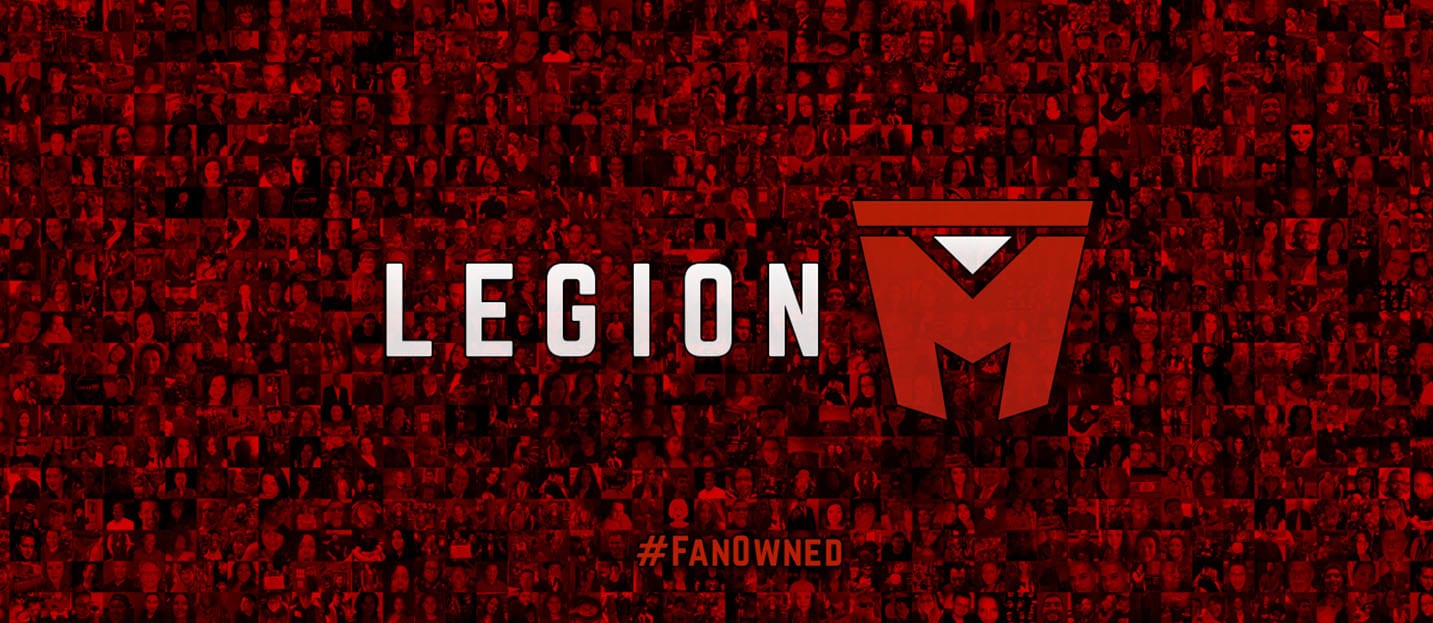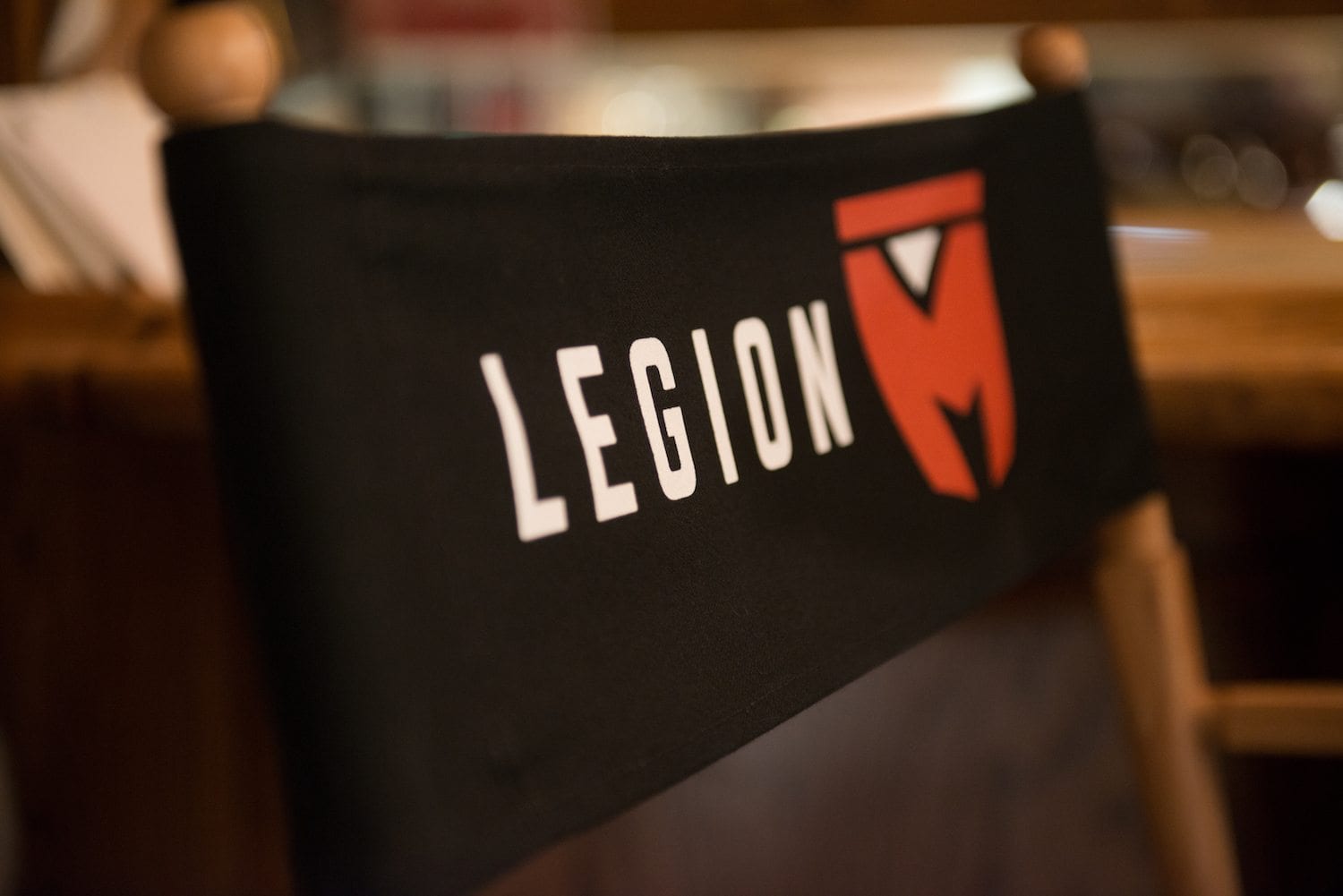
Legion M proves fan funding is the future of Hollywood in 2019
As any indie filmmaker will attest, marketing is hard. With crowdfunding services like Kickstarter and Patreon still growing in 2019, it’s easier than ever to plan, produce, and fund your movie, but finding an audience? Still tough. What if there were a way to make this final puzzle piece a little simpler? Paul Scanlan and Jeff Annison have created a solution to that very problem: Legion M.
The concept is nothing short of genius. Legion M is a production company, a movie studio, and a multimedia entertainment company, but all funded by fans – and with fans comes your audience.
We first heard about Legion M way back in 2016, when they launched their audacious initial crowdfunding campaign aiming to raise a million bucks to seed a “fan-owned movie studio.” Based on draconian financial laws, a studio owned by fans just hadn’t been possible in the U.S. until exactly that point. In response, Hollywood heavyweights spit feathers over the intrepidity of the venture or just sulked in the corner, pissed they didn’t have the idea first.

While the concept of a production studio owned by the people isn’t exactly unique – the BBC has been operating on that exact premise in the UK since 1927 – such enterprises are usually nonprofit, with the fan-investors never seeing anything back for their support.
In the UK, it’s actually a criminal offense to own a television and not chip in for your “licence fee.” With Legion M, fan-investors may not actually be hurling their capital into a bottomless pit, as there’s a real chance they may see a return on their investment – eventually.
However, the potential financial rewards aren’t really the main appeal for Legion M’s more than three thousand fan-investors. What really turns these film buffs on is the chance for a say in the filmmaking process.

Legion M becomes superpowered via its crowdsourced community. At the very active private Facebook group and on the Legion M website forums, fan-investors are consulted about the many ideas the board is considering. Although major strategic decisions are still left up to the founders, from a marketing perspective the Legion M community is already a valuable resource.
By crowdsourcing responses to future campaigns, the community can help Legion M avoid expensive promotional mistakes. To all intents and purposes, fan-investors act as a highly engaged, super-responsive focus group.
Something the Legion M founders excel at is transparency, with every effort going into keeping their fan-investors in the loop. They host regular livestream updates chatting about news & business developments, each session ending with an open floor for questions. These chats go a long way in making community members feel supported and, most importantly, included in the brand they are helping to build.

Although currently limited in size, the community is already powerful. Legion M’s previous marketing campaigns have followed a symbiotic approach; rather than dry-sell Legion M from behind a table at Comic Con, the small team thought outside the box.
They conceived an immersive “happening” for the convention which became known as the Pitch Elevator. 400 entries, one giant prop, and a whole load of social media chatter later, their concept became one of the most buzzworthy experiences at the Stan Lee Comic Con.
Legion M has taken their agile Silicon Valley way of doing business to Hollywood. Film & TV production is flabbier than ever, often turning out to be a wasteful process full of unnecessaries. While tech companies may be interested in preserving the film medium, they generally don’t let their emotions interfere with the bottom line.

Case in point: both the Amazon and Netflix streaming platforms started producing their own content when the Hollywood asking price for content became too high.
Growing from a mere five members in 2017, the team has grown to a full-time group of 12 dedicated and expert strategists. They’ve also amassed a star-studded league of advisors including film critic Leonard Maltin, actor Bill Duke (High Flying Bird), and Alamo Drafthouse CEO Tim League. With the ability to make decisions quickly, they already have the upper hand over the hierarchical Hollywood studio system, where it can take years just to greenlight a project.
Much has been made in the press about the pitching process for Paul Scanlan and Jeff Annison’s previous venture, MobiTV. The dynamic duo became the laughingstock of Hollywood, with one studio executive stating “you’re crazy if you think people are going to watch movies from their phones,” according to Scanlan.

The studios, slow to understand the mobile revolution, eventually did sign up with MobiTV. Paul Scanlan observed further that with Legion M Hollywood has been a lot more accepting and even encouraging of the project.
This could be based on the now-proven track record of the Emmy-winning directors (Paul Scanlan and Jeff Annison), or it could be down to high-profile early adopters such as Seth Green, Alamo Drafthouse, Guillermo del Toro, and Stan Lee. The climate is very different now, with Hollywood insiders aware the time has come for major disruption.
Since we first heard about their mission, the crew has worked tirelessly to incite their fan-funded Hollywood revolution, and they’re closer than ever before to becoming the first port-of-call for unsung, original cinema. Kevin Smith’s Jay & Silent Bob Reboot is their most recent investment and the obvious first choice for fan-funded projects, as the small budget View Askewniverse has often relied on viewer support for funding.

Plus, the team is currently working with Co-Op Entertainment and director Tanya Wexler for Girl With No Name, a gunslinging Wild West romp set in 1869 that’ll first be introduced in comic book form.
Legion M also funded some of your favorite indie flicks in the last couple of years, having invested in the infamously strange Colossal (80% on Rotten Tomatoes) in 2016, as well as reaching more mainstream success last year with the David Tennant vehicle Bad Samaritan, and Panos Cosmatos’s heavy metal LCD ride with Nic Cage, Mandy (91% on Rotten Tomatoes).
Paul and Jeff are known in the industry for tapping into the zeitgeist and sticking their necks out for what they think is going to be the future of entertainment. So far, their results speak for themselves.

With the world decentralizing and media audiences wanting more power over what they consume, Legion M could be the bridge between today’s legacy studio system and what technology may offer us in the future. By heavily investing their plans in the virtual and augmented reality markets, Legion M means to future-proof their business model for tomorrow’s marketplace – and beyond.
In the end, Legion M hopes to find a million investors – which, if they’re successful, will be a much more difficult community to manage than their current few thousand. The cash and minds of a million fans could usher in a new era of entertainment. Regardless whether they pull that off, the Legion M concept is a major disruptor in the content revolution.







